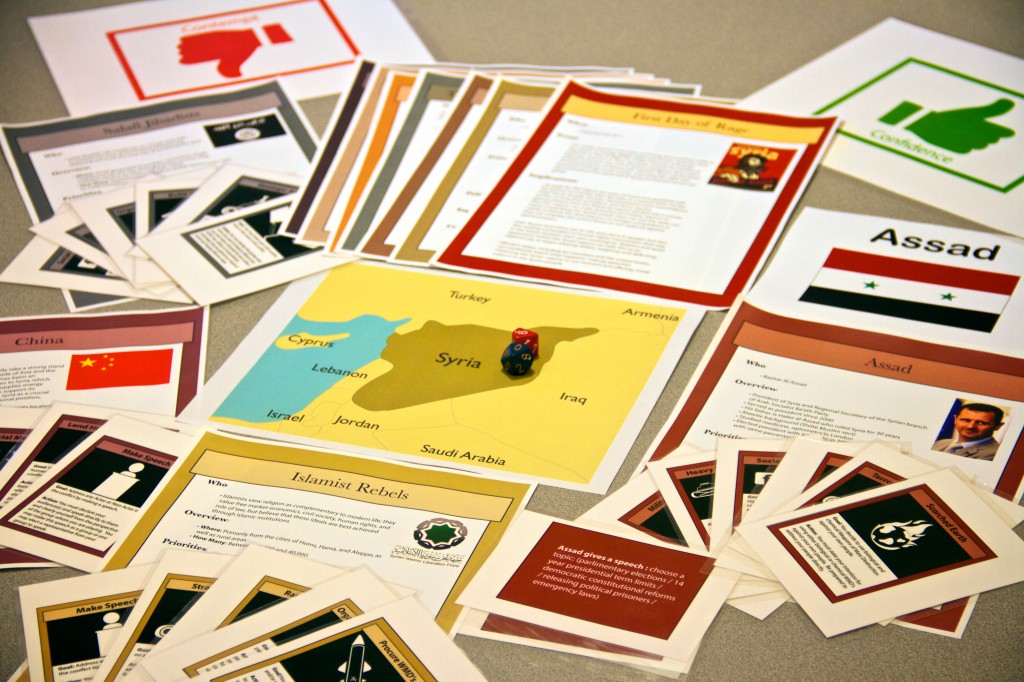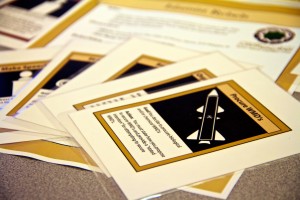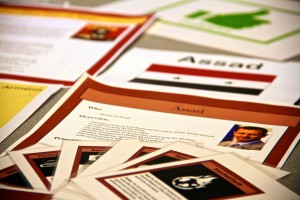On Monday, 4/22 we finally launched the simulation to a group of Cultural Foundations students who signed up for the experiential learning event. In the 3 hours of the event, we managed to make it through 3 rounds of play. We started with an overview of the conflict from the site, Syria Deeply.
In Round 1
The students who played the Salafi Rebels kick-started the action by attempting to suicide bomb Assad. Their justification–they didn’t believe in the regime and wanted to recreate the time of the prophet Muhamed.
Of course, the group playing Assad used the occasion to point out that the attack was a violation of Syria’s sovereignty, and by extension blamed the United States sanctions for creating the humanitarian crisis. The Islamist group allied with the Free Syrian Army. Support by non-Actor states such as the US and Russia split along ideological lines and the Syrian population condemned the actions by the Salafi Rebels.
In Round 2
The Salafi group continued to stir the pot by staging a violent demonstration condemning Assad for
corrupting Islam and “putting it to shame”. The Islamists pleaded for humanitarian aid, stating they didn’t support the radical Islamists.
Turkey built shelters to house the refugees that continued to pour out of Syria and Assad took to social media to show the world how the “sanctions are hurting civilians more than helping”. Iran pledged financial and military aid for Assad while the West, troubled by the alliance between the Islamists and the Free Syrian Army encouraged the alliance to split.
In Round 3
The Free Syrian Army broke their alliance with the Islmaists, stating they couldn’t stand by their violent ends and instead dedicated their support to the Western powers. The Salafi Rebels brought the conflict to full boil by attempting to procure WMD’s
in support of their jihad and to bring attention to their cause to kill corrupt, secular non-believers.
In response, Assad, sick of the getting attacked, played the “Scorched Earth” card and used biological and chemical weapons on his own people.
As a result of the Assad group’s decision, “winning” (achieving peace) was all but impossible. The Syrian population began fleeing the country in droves because of the lack of security and the west condemned the action, stating the “red line” had been crossed.
The west increased its aid to the Free Syrian Army. Iran deftly pointed out that the West, once upon a time, used biological warfare against Iran. Iran then backed Assad by providing military support.
Finally, the United Nations General Assembly met and passed a resolution to support UN Peacekeepers in Syria–as long as the effort was not led by the US.


